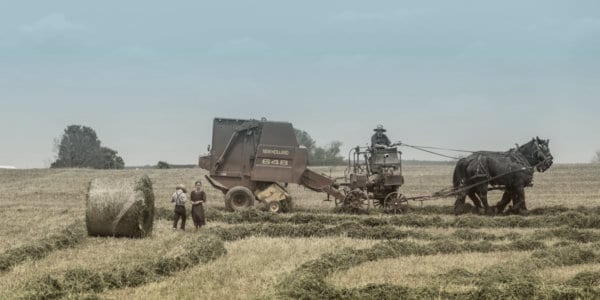So what is so great about turning 80? Is it the fact that we have beaten the odds and made it to Canada’s average life expectancy for males? Do we feel blessed by being allowed to live for seven full decades without fatal injury or disease snuffing out our lives? Is it due to the good genes that we inherited from our parents? Or does any of that matter? We are here, aren’t we?
Why should Octogenarians feel compelled to tell others how they got this far? TV interviews often depict Centenarians offering a quick answer to the inevitable question, “To what do you attribute the secret of your long life?” Their responses are usually tongue-in-cheek quips such as, “Oh, I never went to bed angry.” Or “I always downed 2 shots of schnapps before retiring.” The interviewer pretends to be convinced that he has just uncovered the secret of longevity, and prepares the interview for the evening news. Everyone knows that it is pure bunk.
The interviewer should be asking, “What major change affected your life”? The main advantage of living through 7 decades is having a front row seat to view the way in which society has radically changed, and to some extent, changed us, over a lifetime. My generation, born during the Great Depression, went from the adolescent horseless carriage stage to the era of 500 passenger supersonic jets. We lived through the war and post-war boom that sparked unstoppable changes that accelerated as swiftly as our lives unfolded.
As Octogenarians we witnessed a communications revolution that propelled us from the rudimentary telephone, telegram, and radio to a wafer-thin, hand-held device that enables us to communicate globally by voice, take and send instant photos, watch TV, send and receive text messages, and even read books.
We witnessed a dramatic agricultural revolution that moved farming from centuries-old back-breaking drudgery to one of high-tech wizardry that would have been beyond the wildest imagination of the early 20th century farmer.
Our food supply, once mostly home-grown, is to-day so plentiful and varied that it allows us to eat well without growing or making a single item. We just need money to purchase a stunning array of food items from around the globe at supermarkets the size of hockey arenas.
Serious illness during my childhood was looked upon with dread, as medical expertise, facilities, and treatment were very basic. Home remedies, not doctors, were the mainstay of our Medicare. To-day we can enter hospital and receive expert treatment for every conceivable illness. We can even leave with artificial knees, shoulders or hips, as well as a transplanted heart, lung, or kidney. Bionic arms and legs attached to our bodies enable us to function almost as well as with the original limbs.





